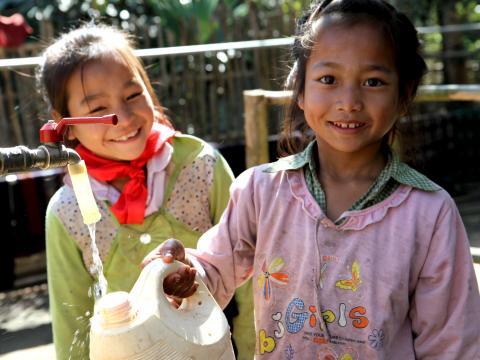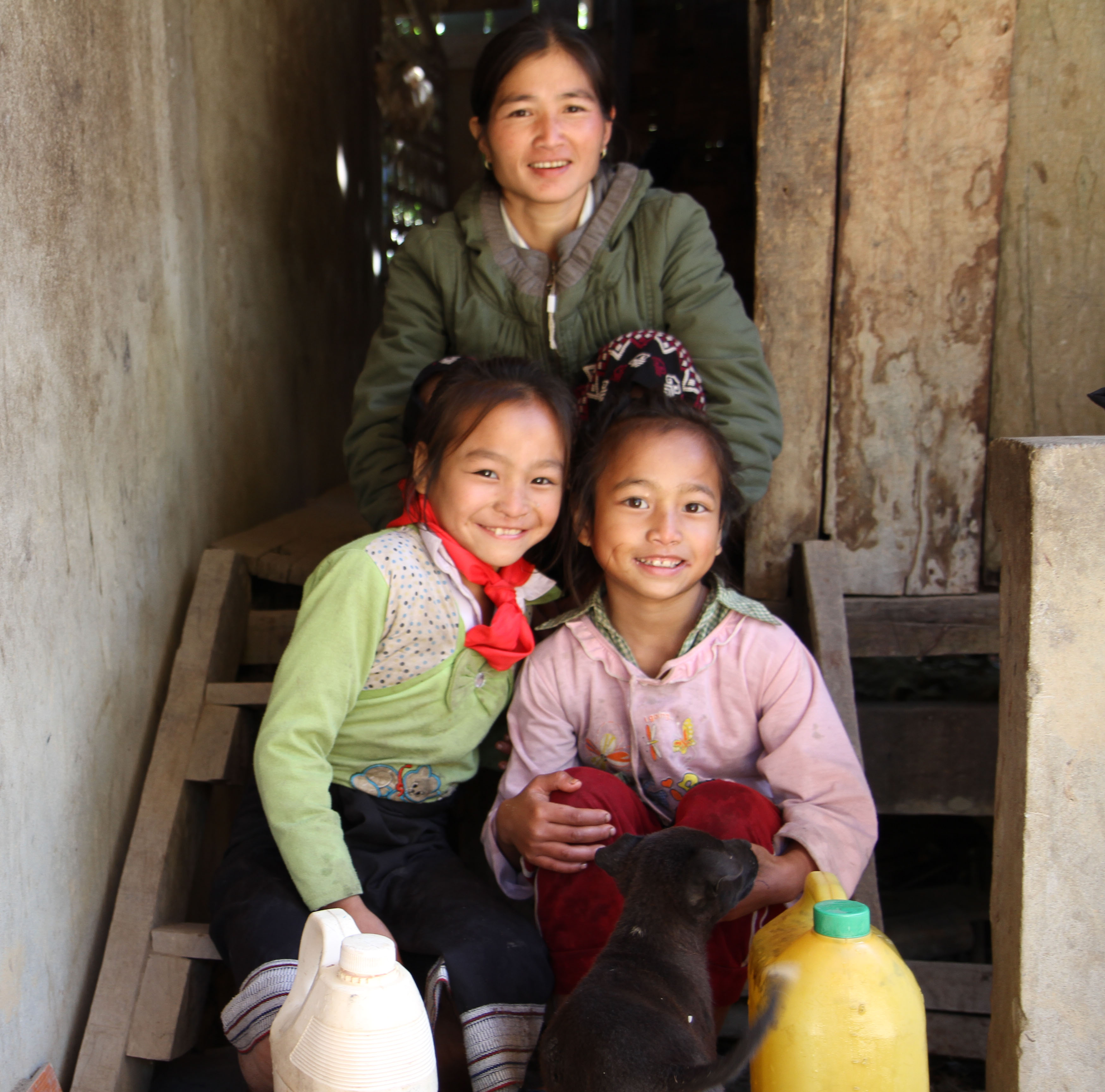Access to clean water, medicine gives sponsored child a better life

Laos is steadily increasing access to safe drinking water, but needs to accelerate progress to achieve its 2015 Millennium Development Goal target. In 2011/12, some 70 per cent of the population had access to improved sources of drinking water, however families who live in rural areas often have less access than their urban counterparts.
Ten-year-old Bay used to live in one of these communities. Her family didn’t have clean water. Like the other families in her village, they fetched water from the river and ferried it 2km back home twice a day.
Each day, the task of getting water took nearly two hours. In rainy season, getting water was dangerous.
“Sometimes, we did not even have water for drinking because it was dangerous,” says Bay’s mother Noud, 40 years old.
Worse, the dirty water was making the children sick.
“A few years ago, people living here always got sick – both adults and children. We were especially sick with diarrhea and malaria. It was a big problem with us because our village is far from town and the road conditions were bad. If there was a sick people we just cured them with tree roots and another traditional cure,” Noud added.
Recently, World Vision VeingKham Area Development Programme helped the community address their lack of clean water.
With funding from World Vision Malaysia, the organization helped the community construct a water system in Bay’s village, and 7 other villages too. More than 1,000 families benefited from the program.
One of the community water taps was set up next to Bay’s house.
“I am very happy that we have water tap near our house and I could take bath or wash my hands at any times that I want,” says Bay, a Grade 3 student, who is also a sponsored child.
“Now I am not taking a bath in the river anymore because we have a water tap near our house,” she adds.
World Vision staff also helped the community set up a village medical fund, so that families could have access to medicine for simple illnesses within their own community, instead of having to travel far for health care.
Further, World Vision staff helped families learn about the importance of sanitation, drinking clean water or boiling unsafe water before drinking.
“We are so happy.This is more convenientfor my family, we do not have to worry about carrying the water any more after returning from work in the fields,” Bay’s mother says.
“My children are healthier than before and we have 5 water pumps in our villages.We have enough water to use in our community. The water is cleaner than before” she adds.
“I want to say thank you to the government, World Vision and donors who supportedus and funded help to our community,” Noud says.
“My family and children are healthier and we have a better life than from before,” Noud concludes.
